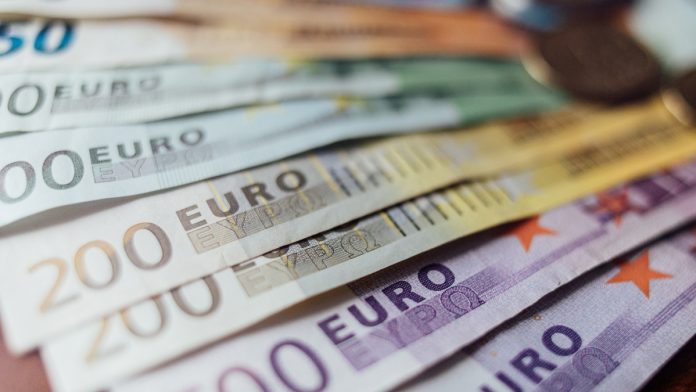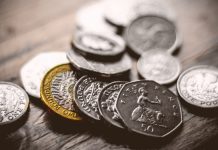- Pound (GBP) looks to BoE’s Andrew Bailey
- The market is focused on a rate cut
- Euro (EUR) falls after PPI data
- ECB’s Wunsch warns of further rate hikes
The Pound Euro (GBP/EUR) exchange rate is rising after losses last week. The pair fell -0.15% in the previous week, settling on Friday at €1.1421 and trading in a range between €1.1408 – €1.1509. At 09:00 UTC, GBP/EUR trades +0.04% at €1.1419.
The pound fell last week after a series of weak data fueled market expectations that the Bank of England’s next move will be an interest rate cut rather than an interest rate hike.
UK inflation cooled to 4.6% year on year. Jobs data showed signs of weakness, and retail sales unexpectedly fell month on month. As a result, the market is now pricing in the 60% probability of an interest rate cut in May next year.
Attention now turns to Bank of England governor Andrew Bailey, who is due to speak later today. Any comments regarding the outlook for the UK economy or the future path of interest rates could influence GBP.
Looking across the week, it’s a quieter week for data; however, Chancellor Jeremy Hunt will unveil his autumn Budget on Wednesday. While some UK papers have reported that Jeremy Hunt is considering income tax cuts, the Chancellor of the Exchequer himself pushed back on the prospect of this, saying that he wouldn’t adopt measures that fuel inflation.
The euro is falling after German wholesale inflation, as measured by the producer price index, cooled by 11% year on year. This was down from 14.7% in September indicating a weak demand environment. The data suggests that consumer price inflation could continue to fall.
CPI on Friday showed that inflation had cooled to 2.9% year on year in October, down from 4.3% in September, prompting bets that the ECB could soon start to cut rates.
However, governing council member Pierre Wunsch said that markets are optimistic by discounting the possibility of further hikes and expecting the first reduction in the ECB interest rate from 4% as soon as April. This optimistic view risks undoing the ECB’s work so far, and warned that the interest rate could remain at 4% for longer.
ECB chief economist Philip Lane is due to speak later today and hawkish comments could push the EUR higher.





